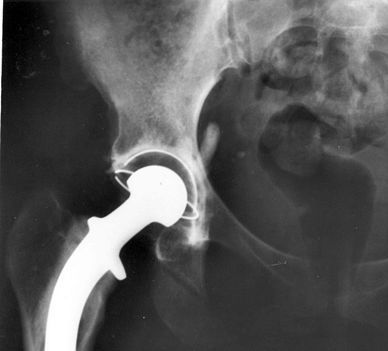Article
Bisphosphonates Boost Lifespan of Lower Limb Implants in Osteoarthritis
Data from a UK patient registry show that preoperative bisphosphonates substantially reduce the likelihood that a hip or knee replacement will wear away and need to be redone later.
Previous research has suggested that the bone-building properties of bisphosphonates could help to lengthen the lifespan of hip or knee implants by reducing erosion of the bones around them. Now, for the first time, a retrospective study of osteoarthritis patients in the UK has gone to the heart of the issue by using time to revision surgery as an outcome--with positive results.

Among patients with documented osteoarthritis in particular, those who took bisphosphonates for at least a year before hip or knee replacement surgery were substantially less likely to require a revision procedure within the next 3 years. The benefit seemed most effective after 5 years, when the most common cause of revision is loosening of the implant due to resorption of the surrounding bone.
The study involved analysis of records from the UK's General Practice Research Database, including only patients over age 40 who had arthroplasty of the hip or knee between 1986 and 2006. To focus on those being treated specifically for osteoarthritis, it exclued patients with a prior hip fracture. Comparing patients whose doctors had not prescribed bisphosphonates with others who had been taking one of these drugs regularly for at least six months before surgery (deduced from their pharmacy records), the researchers followed the fate of implants for a median of 3.5 years.
Overall, revision rates during the followup period were about twice as high among patients who had not taken bisphosphonates. The difference reached statistical significance after five years of followup, and also for those patients whose primary care physicians had recorded a diagnosis of osteoarthritis before the primary surgery.
Obviously this benefit of bisphosphonates needs to be balanced against the risk of adverse reactions to the drug, say the authors, observing that those risks are relatively low. The number of patients who would need bisphosphonates to eliminate one revision procedure is 107, higher than the number of osteoporosis patients who would need bisphosphonate treatment to avoid either one hip replacement or one vertebral fracture among osteoporosis patients. But revision surgery after joint replacement is significantly more costly than primary surgery, they add.
Problems with / comments about this article? Please send feedback.

Real-World Study Confirms Similar Efficacy of Guselkumab and IL-17i for PsA



